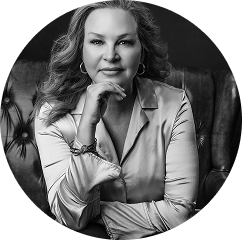
The closing process for real estate transactions in British Columbia (BC) involves several important steps and legal requirements to ensure that the sale of the property is completed smoothly and legally. Here is an overview of the closing process for real estate in BC:
- Acceptance of Offer: Once the buyer's offer to purchase the property is accepted by the seller, a legally binding contract is formed. This contract outlines the terms and conditions of the sale, including the purchase price, deposit amount, closing date, and any other contingencies or conditions.
- Deposit: Upon acceptance of the offer, the buyer typically provides a deposit, which is held in trust by the seller's real estate brokerage or lawyer. The deposit demonstrates the buyer's commitment to the purchase and is applied towards the purchase price at closing.
- Title Search and Due Diligence: The buyer's lawyer or notary public conducts a title search to ensure that the seller has clear title to the property and that there are no outstanding liens, mortgages, or encumbrances that could affect the sale. The buyer may also conduct additional due diligence, such as obtaining a home inspection and reviewing strata documents for condominiums.
- Mortgage Financing: If the buyer is obtaining mortgage financing to purchase the property, the lender will conduct an appraisal of the property to determine its market value and assess the buyer's creditworthiness. The lender will issue a mortgage commitment letter outlining the terms and conditions of the loan.
- Finalizing Closing Documents: Prior to closing, the buyer's lawyer or notary prepares the necessary legal documents, including the transfer of title, mortgage documents, and any other required paperwork. The seller's lawyer or notary may also prepare documents such as a statement of adjustments and a discharge of mortgage.
- Closing Funds: The buyer must provide the remaining funds required to complete the purchase, including the balance of the purchase price, closing costs, and any adjustments. These funds are typically provided to the buyer's lawyer or notary in the form of a bank draft or wire transfer.
- Closing Day: On the closing day, the buyer's lawyer or notary registers the transfer of title with the Land Title and Survey Authority of British Columbia (LTSA) and ensures that all closing documents are properly executed and filed. Once the transfer is registered, ownership of the property officially transfers from the seller to the buyer.
- Possession and Key Exchange: Following the registration of the transfer, the buyer takes possession of the property and receives the keys. The buyer may move into the property immediately or at a later agreed-upon date, depending on the terms of the sale agreement.
- Post-Closing Matters: After closing, the buyer's lawyer or notary completes any remaining post-closing matters, such as disbursing funds to the seller, registering any mortgages or other encumbrances, and providing the buyer with copies of all closing documents.
Disclaimer:
The information provided in these posts are for general purposes only. It is not written nor intended to provide legal advice or opinions of any kind. No one should act upon, refrain from acting, based solely upon the materials provided & recorded, or through any hypertext links and other general information, without first seeking appropriate legal and/or other professional advice.

